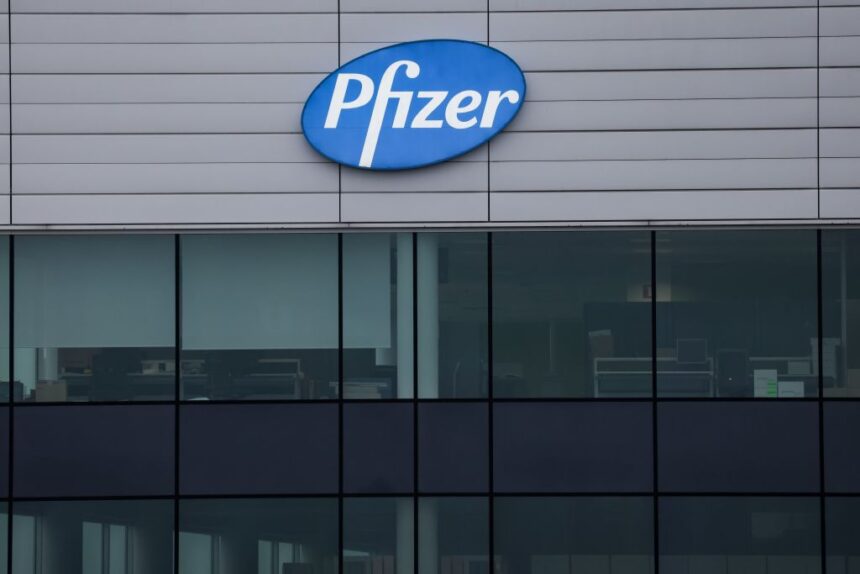Pfizer raised its full-year 2024 outlook after it reported higher-than-expected revenue in the first quarter of the year Wednesday morning.
In its earnings report, the drugmaker said it brought in revenue of $14.88 billion compared to previous estimates of $14.01 billion.
However, the pharma giant experienced a decline in its COVID-19 products as predicted. A drop in its Comirnaty and Paxlovid sales led to a year-over-year operational decrease in revenues of 19%, Pfizer reported.
Still, the company said it expects to bring in somewhere between $58.5 billion and $61.5 billion for its full year revenue guidance.
Pfizer CEO Dr. Albert Bourla noted in a statement that the pharma was able to make up for decreasing COVID-19 sales through other products, including its Vyndaqel family of drugs, which treat cardiomyopathy.
Eliquis and the Prevnar family of vaccines also contributed to the 11% operational growth of non-COVID products.
Bourla pointed to Pfizer’s oncology drugs, including Ibrance, Xtandi, Padcev and Adcetris, as helping to make up for some of the loss in COVID-19 sales. Of note, Pfizer picked up Padcev and Adcetris from its $43 billion acquisition of Seagen, which it completed late last year.
“We delivered strong performance in our non-COVID product portfolio in the first quarter of 2024, including increased revenue from several of our recent commercial launches and acquired products, as well as robust year-over-year growth for several key in-line brands,” Bourla stated. “Overall, I am encouraged by a well-executed quarter, setting the tone for the year. Pfizer’s commercial leadership is focused on data-driven opportunities across several key growth brands, both in the U.S. and internationally, and we intend to build on this positive momentum in the quarters ahead.”
The pharma noted that it expects to remain on track to reach $4 billion in savings by the end of 2024, which it originally announced at the end of last year when it said it will carry out a cost-cutting plan in sales and R&D budgets.
Puru Gaur, a healthcare analyst at Norstella, noted in a written commentary on the quarterly results that analysts expect cancer drug Ibrance revenues to continue declining as it loses market exclusivity in 2027.
However, analysts have pinpointed several other drugs in Pfizer’s pipeline, including Adcetris, which is being investigated for the treatment of diffuse large B-cell lymphoma in a Phase 3 study. Pfizer is also aiming for a Food and Drug Administration approval for marstacimab, a Hemophilia A and B treatment, later this year.
“Pfizer reaffirmed its commitment to protecting and expanding its core brands and key blockbusters, including Prevnar, Vyndaqel and Eliquis, underscoring its strategic focus moving forward,” Gaur wrote. “Overall, Pfizer’s $43 billion acquisition of Seagen last year was a strategic move to counteract anticipated revenue losses and looming patent expirations for key drugs like Ibrance, Vyndaqel and Xeljanz.”
For a July 2024 article on Pfizer raising its Q2 2024 outlook thanks to solid sales of cancer and heart drugs, click here.
To read an August 2024 article on Pfizer eyeing an expanded label for RSV vaccine Abrysvo, click here.







